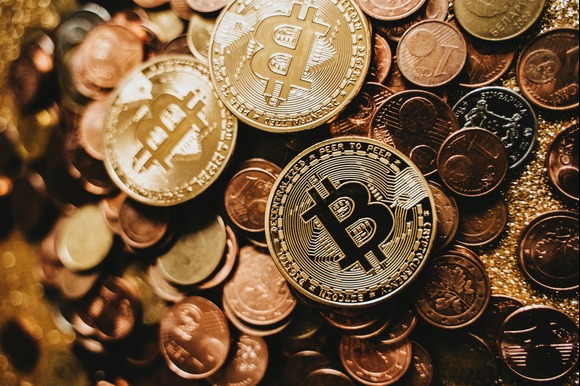When London police raided a sprawling mansion on the edge of Hampstead Heath, they expected to find signs of lavish living. What they didn’t expect was one of the largest cryptocurrency seizures in British history — tens of thousands of Bitcoin worth billions of pounds, linked to a Chinese woman accused of defrauding thousands of elderly investors back home.
That woman, 47-year-old Qian Zhimin, had fled China under a fake passport, reinventing herself in Britain as a mysterious heiress with a taste for luxury and an ambition that bordered on the delusional. She now awaits sentencing in a London court for money-laundering offences connected to a fraud that destroyed lives across China — a fraud some victims still hope could yet return them a fragment of what they lost.
A Fortune Built on False Promises
Police say Qian masterminded a colossal scam that targeted more than 100,000 people — mostly elderly Chinese pensioners — who were persuaded to invest their life savings in her company, Lantian Gerui (known in English as Bluesky Greet).
The firm claimed to be a trailblazer in high-tech health products and cryptocurrency mining. In reality, according to investigators, it was a façade — a vehicle for siphoning off billions of yuan from ordinary people chasing a dream of quick riches.
After the company collapsed, Qian vanished from China. She surfaced in the UK in 2017, living in a rented Hampstead mansion costing over £17,000 a month. The property’s luxury was sustained by the secret fortune she had smuggled out of the country: a hoard of Bitcoin that had since multiplied many times in value.
The Heiress of Hampstead
To the outside world, Qian presented herself as a wealthy antiques and diamond heiress. She hired staff, including a personal assistant — a former takeaway worker named Wen Jian — to help her launder her cryptocurrency into cash and property.
While Bitcoin prices soared, Qian appeared to be living the lifestyle she had promised her investors — “to get rich while lying down.” Wen later testified that her employer spent much of her time in bed, playing online games and shopping, while simultaneously drafting audacious new plans for her global empire.
In her diary, police later discovered, Qian had mapped out a six-year blueprint for domination: creating an international bank, purchasing a castle in Sweden, even cultivating ties with British aristocracy. Her most grandiose ambition, written in neat Chinese script, was to become queen of Liberland, a self-proclaimed microstate wedged between Croatia and Serbia.
The Fall of a Crypto Queen
For months, Qian seemed untouchable. But her schemes began to unravel when she tried to buy an extravagant property in Totteridge Common, north London — a quiet enclave of multi-million-pound homes.
When Wen was unable to justify her employer’s immense wealth, suspicions were raised. The Metropolitan Police soon launched an investigation, leading to a raid on Qian’s Hampstead residence.
Inside, detectives uncovered hard drives and laptops stuffed with tens of thousands of Bitcoin — a discovery so vast it stunned even experienced officers. It was, they said, the single largest cryptocurrency seizure in UK history.
The Dream That Deceived a Nation
Back in China, the collapse of Lantian Gerui had devastated families across every province. The company had promised investors spectacular returns — up to 200% profit in two and a half years — while paying small daily dividends to keep the illusion alive.
For Mr Yu, a 60-year-old retiree, those daily payments were addictive. “It made us feel good,” he told the BBC World Service. “They said, ‘Reinvest, bring your friends.’ Before long, we lost all control.”
He and his wife had each invested 60,000 yuan, then borrowed more at steep interest rates to feed their dream. Their returns, it turned out, were simply recycled money from new investors — the hallmark of a pyramid scheme.
Qian’s marketing strategy preyed on loneliness and patriotism. Her company wrote sentimental poems about loving the elderly and held lavish banquets and holiday events to draw in crowds. “They said they wanted to make China number one,” Mr Yu recalled. “Our patriotism was our weakness — and they exploited it.”
To cement her credibility, Qian courted political symbolism. Her firm hosted events endorsed by high-profile figures, including the son-in-law of Chairman Mao, and even staged gatherings in the Great Hall of the People in Beijing.
Among her followers, Qian was a mythic figure — known affectionately as Huahua, or “Little Flower.” She rarely appeared in person but cultivated an image of benevolent genius through the poems and aphorisms she posted online.
“Our Goddess of Wealth”
For her biggest backers — those investing millions — Qian sometimes made personal appearances. One such investor, Mr Li, recalls meeting her at a private gathering. “We were starstruck,” he said. “She told us to dream big — that within three years, she would give us enough wealth for our families to live comfortably for generations.”
He and his relatives poured in 10 million yuan — over £1 million. When Chinese authorities began investigating the company in 2017, the payouts abruptly stopped. Qian’s top managers reassured investors that it was temporary, but she had already paid them off and fled the country.
A Diary of Delusion
In her diary, Qian appeared to acknowledge her debts to investors, writing that she would repay them once Bitcoin hit £50,000 per coin. Yet most of her notes dwelled on grander ambitions — the bank, the castle, the throne of Liberland.
When police finally arrested her in April last year, it was in York, northern England. Officers also found four other people living in the property, allegedly working for her illegally as domestic staff and security guards.
In court, Qian initially claimed she was a victim of China’s crackdown on crypto entrepreneurs. But during her trial in September, she abruptly pleaded guilty to acquiring and possessing criminal property — a move that, for many victims, offered the first glimpse of justice.
The Fight for the Fortune
The cryptocurrency Qian brought to the UK has since multiplied twentyfold in value. Now, a legal battle looms over who will ultimately control the fortune.
Thousands of Chinese investors plan to file claims in a civil “proceeds of crime” case set to begin next year. But the process will be fraught: many never transferred money directly to Qian’s company, instead paying local promoters who passed funds up the chain.
Lawyers warn that proving ownership will be difficult — and it’s unclear whether successful claimants will receive only their original investment or the current, vastly inflated value of the Bitcoin.
Any unclaimed funds would normally go to the UK government, prompting speculation that the Treasury could profit from the case. The department has declined to comment.
The Crown Prosecution Service, meanwhile, says it is considering a compensation scheme for victims without representation, though details remain scarce.
The Human Cost
For Mr Yu, the damage has already been done. His marriage collapsed under the strain of debt, and he has little contact with his son. Yet he still considers himself “one of the lucky ones.”
Others fared far worse. One investor from Tianjin, a woman battling breast cancer, was forced to discharge herself from hospital when she could no longer afford treatment. She later died.
“She knew she was dying,” Mr Yu said quietly. “She asked me to write her an elegy.”
He did. The poem, now shared among other victims online, ends with words that capture both grief and defiance:
“Let us be pillars, holding up the sky,
Rather than sheep, to be led and misled.
To those who survive — strive harder,
That we might right this grave injustice.”
Qian Zhimin’s sentencing will decide her fate — but for the thousands whose lives she upended, the true judgment will come later, when British courts decide what becomes of her vast crypto fortune.
For those who lost everything, the hope remains painfully simple: that some piece of their vanished future might yet be reclaimed from the ruins of the Crypto Queen’s empire.






